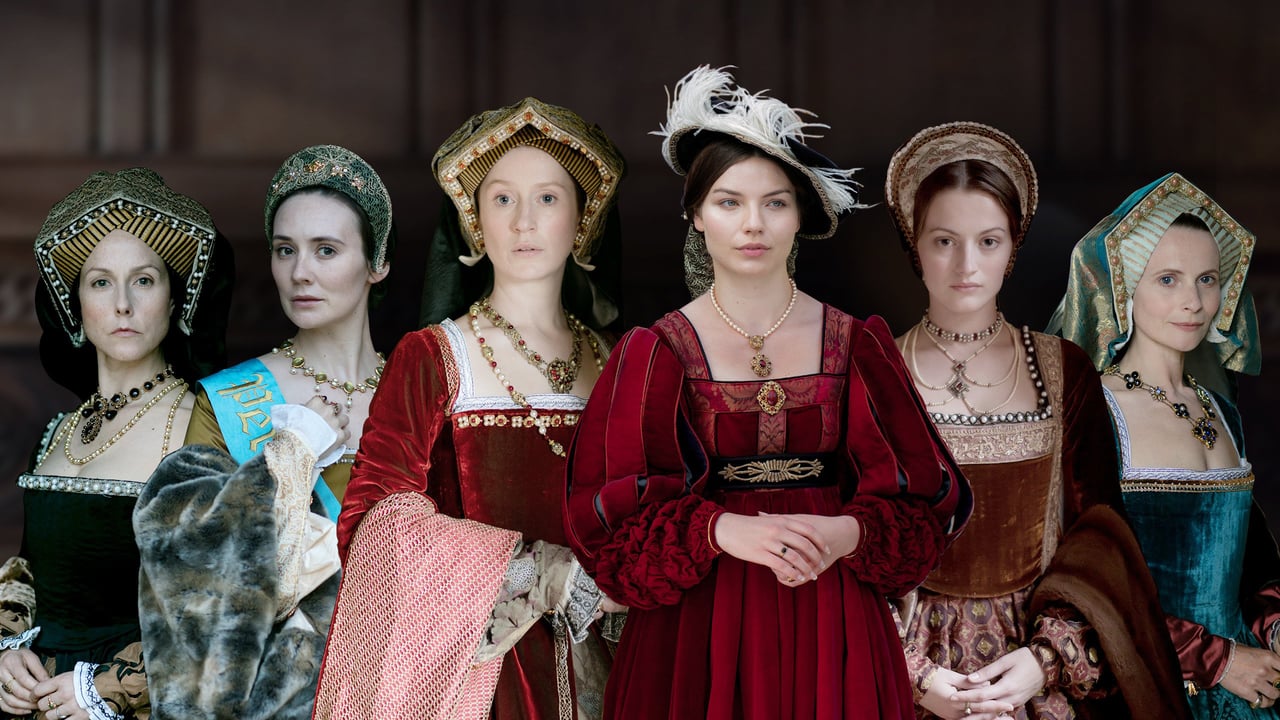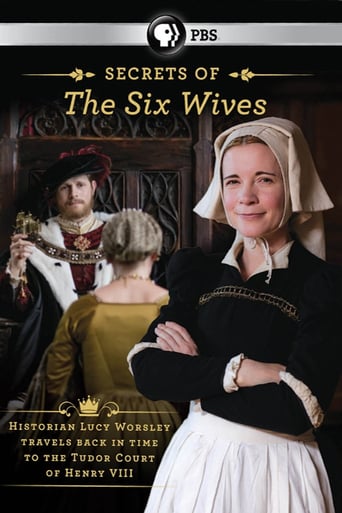

I like the storyline of this show,it attract me so much
... View Morea film so unique, intoxicating and bizarre that it not only demands another viewing, but is also forgivable as a satirical comedy where the jokes eventually take the back seat.
... View MoreA lot of perfectly good film show their cards early, establish a unique premise and let the audience explore a topic at a leisurely pace, without much in terms of surprise. this film is not one of those films.
... View MoreIt is interesting even when nothing much happens, which is for most of its 3-hour running time. Read full review
... View MoreI generally like Lucy Worsley's stuff, and certainly the theatrical device of having standing by as an ignored servant during the imagined conversations works well. The idea of life from Henry's wives point of view is excellent, but the program isn't really that. Rather it concentrates on some highly contentious views of the history, views that are barely supportable. OK as an academic thesis, not good for a documentary.Anne Boleyn is presented as losing her grip on Henry and then being stitched up and executed. But it is known that Henry, only two weeks before Anne was arrested, engineered an encounter with the French Ambassador where he was forced to acknowledge her. Anne had long craved this acknowledgment - France and Spain made no secret of their view that she was little more than a whore. If Henry had become dis-affected, why would he have expended diplomatic capital on her behalf in this way. Definitely not his style. She wasn't losing her grip on him.It is hard to escape the conclusion that something very serious came to light between that meeting and her arrest. Would the 'treasonous' light hearted conversation with Norris that touched on Henry's death (hence treasonous) have been enough? It seems unlikely. Given the suddenness and ferocity of Henry's reaction you have to think he felt deeply insulted. Proof of adultery is the more likely explanation, and her brother is a very good candidate.Again the love letter from Catherine Howard to Thomas Culpepper is brushed off; the explanation from Worsley is just not credible. Yes, Howard was seduced by Culpepper and had an affair with him; the letter makes it crystal clear she was a willing participant. If as Worsley says "she was only writing what Culpepper wanted to hear", she would not have put her heart into it as she did, she would have written the words, but without passion. Yes, she was abused as a child, yes she was seduced, but she knew the rules. If you marry the king, falling in love and having an affair carried the death sentence.There were other things I noticed, but enough is enough. It is all a bit "Henry's wives according to the women's pages of the Guardian"
... View MoreDivorced. Beheaded. Died. Divorced. Beheaded. Survived.Lucy Worsley goes where many historians have gone before -- but in a unique way, by stepping back in time to illustrate scenes from Tudor life. She spends a decent chunk of the three episodes with Katharine of Aragon, revealing her as the "warrior queen" devoted to her husband's spiritual welfare, dispelling the myth of her as an angry, bitter old woman and instead showing the fire and zeal of a true fighter, who gave Henry 'what for' over seven years.Her Anne Boleyn is a fair portrait of an intelligent, ambitious woman in over her head, whose flirtations give rise to scandal and set her up for removal.She defends Jane Seymour as no doormat, but instead an intelligent, clever woman intending to play one in order to survive.Anne of Cleves is depicted as the one woman who outsmarted all the others, who held out for better things, and died better off by far than any of the others.Katherine Howard arguably receives the greatest re-imagining, with Worsley raising questions about her affair with Culpepper being the result of blackmail over her previous sexual activities -- and she boldly attacks the presuppositions about Katherine as a "slut" by staring into the camera and asserting that nowadays, we'd call her an abused child.Katherine Parr is portrayed as the most "intellectually curious" of Henry's wives, with much emphasis placed on her evangelism, her writing of the first book in England published by a woman, and her cleverness in managing to escape an arrest warrant.It's arguably brief. It glosses over much in each woman's life. You'd need longer than three episodes to explore the first two queens' humanitarian work, or Katherine Howard's compassion to those in need (including poor imprisoned Margaret Pole), but for a brief introductory biography that escapes common clichés and biases, and treats each wife fairly with no hints of favoritism, it's an excellent three hours.
... View More